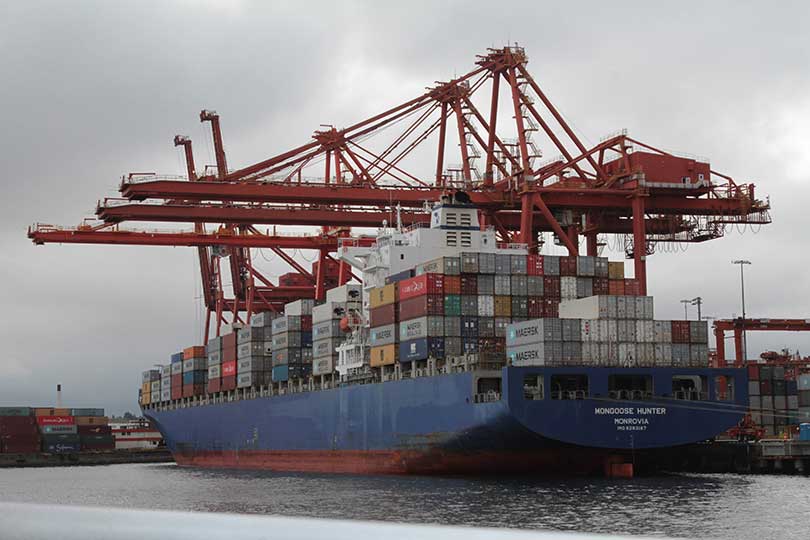By Jessica Domel
Multimedia Reporter
The Trump administration is seeking additional free trade opportunities to sell U.S. agricultural and consumer goods abroad.
“We are committed to concluding these negotiations with timely and substantive results for American workers, farmers, ranchers and businesses,” Lighthizer said.
Japan is currently the fourth largest goods export market for the United States. In 2017, Japanese buyers imported $67.6 billion in goods from the U.S., including $12 billion in agricultural products.
Japan is the largest customer of U.S. pork, purchasing about $1.5 billion in 2017; the second largest customer of U.S. wheat, purchasing about $713 million last year; the second largest customer for U.S. corn with purchases topping $2 billion last year; and the third largest customer of U.S. soybeans, spending about $974 million in 2017.
After President Trump pulled the United States out of the Trans-Pacific Partnership (TPP) after taking office, the U.S. and Japan have debated how to move forward.
“Japan had maintained up until (late September), and they probably still do, they would prefer the U.S. to rejoin the TPP, but the U.S. government wanted to go with a bilateral with Japan,” Dave Salmonsen, senior director of Congressional Relations for the American Farm Bureau Federation, said in an interview with the Texas Farm Bureau (TFB) Radio Network. “So Japan has agreed to do that.”
U.S. President Donald Trump and Jean Claude Juncker, president of the European Commission, announced in July their intent to negotiate in order to ease trade tensions.
Although there have been talks since then, Lighthizer formally notifying Congress kicks-off the official process.
“I think the issues with the EU really haven’t changed as far as agriculture is concerned,” Salmonsen said.” We still want them to change some of their standards that are a barrier to our pork and chicken and beef exports into the EU. They have issues about labeling of dairy and meat products with their geographic names, something the EU wants to do, and we have a lot of resistance to that.”
According to USTR, the economic relationship between the EU and U.S. is the largest and most complex in the world with more than $1.1 trillion in goods traded annually.
Despite the significant value, tariffs and non-tariff barriers tamper trade.
“Biotechnology approval processes are slow in the EU. We’d like those reformed,” Salmonsen said. “EU says they don’t want to do agriculture, but of course the U.S. administration and U.S. agriculture, of course including Farm Bureau, has been insistent. We aren’t going to go forward with a full trade negotiation unless agricultural issues are included.”
The U.S. exported $11.5 billion in agricultural products to the EU last year. The EU exported $22.2 billion to the U.S.
Soybeans, beef, wine, processed fruits and vegetables are among the top exports from the U.S. to the EU.
“Another issue that makes things a little murky is the terms of the United Kingdom, or Great Britain, leaving the EU and what that will mean for both future relations between the U.S. and Great Britain and the U.S. and European Union,” Salmonsen said. “So a lot of potential there, we think. That’s such a huge market that’s looking for a lot of imports, but we face a lot of restrictions, both structural barriers and tariff barriers.”
The UK is expected to formally leave the EU in 2019.
In 2017, the U.S. and UK traded nearly $236 billion in goods.
Notifying Congress of its intent to negotiate new trade deals kicks-off the Trade Promotion Authority (TPA), or fast track, process.
TPA requires the administration to have ongoing conversations and consultations with Congress throughout the negotiation process. Once a deal is reached, Congress then votes for or against the agreement.
In accordance with TPA, USTR will publish its objectives for negotiations with the EU, UK and Japan 30 days before form

